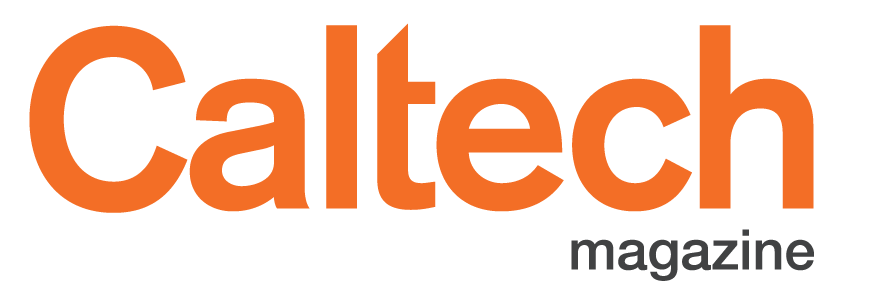Pulsars and Pretzels
Astronomy on Tap Takes Science out of the Lab and into the Bar
Image: Alex H. Parker
Every night of the week, patrons pour into a bar in Old Town Pasadena and plop themselves down at long wooden tables. Beneath the blue and white Bavarian flags that adorn the dimly lit hall, they gulp down great mugs of sudsy beer and dine on German-style pub food.
Most of the time, the bar, Der Wolfkopf, is filled with the din of sports blaring from big TVs on the walls, of conversations, laughter, and glasses clinking. But once a month, Caltech astronomers take over to present Astronomy on Tap, an evening of black holes and bratwurst, wormholes and witbier, pulsars and pretzels.
Astronomy on Tap began as an outreach program in New York City several years ago and has now spread to cities across the U.S. and even into Canada, the Netherlands and Chile. The idea is to take the science of astronomy out of its isolation in sterile labs and present it to the public in a fun, comfortable environment. As its slogan goes, "Science is even better with beer."
Cameron Hummels, a Caltech postdoctoral scholar in astronomy, was first exposed to the Astronomy on Tap model during his time at Columbia University in New York City, where he was the Department of Astronomy's director of public outreach. When he arrived at Caltech two years ago, he brought many of the outreach practices from Columbia with him. In January 2016, he started an astronomy lecture series on campus that has been well attended by the public, but he also wanted a way to reach out to people who might be more ambivalent about science.
"A lot of times, the audience at the lectures consists of people who already have an interest in science," Hummels says. "Astronomy on Tap breaks down the barrier of going to an educational institution to learn. This is chill."
Since Caltech's Astronomy on Tap began last year, there have been 12 events, each featuring trivia games, prizes, and two astronomers discussing a topic of their choosing. In keeping with the spirit of the event, the topics are presented informally, and sometimes with colorful names like "Galaxies Are People Too" or "Pulsars: Spinning Stellar Corpses."
“It’s good for the public to see we’re really no different than anyone else—we like good entertainment and a glass of beer.”
Rahul Patel, a postdoctoral researcher at Caltech's IPAC center, led a discussion called "Jupiter: Exposed" shortly after the Juno spacecraft began sending back imagery from that planet.
"The audience was receptive. They laughed at my corny jokes and they had a lot of fun," Patel says. "I got a lot of really good questions and people engaged me right afterward wanting to know more."
Gary Blackwood, manager of the NASA Exoplanet Exploration Program at JPL, entertains participants at the March 13 Astronomy on Tap at der Wolfskopf.
Patel says events like Astronomy on Tap give the public a better understanding of both science and the scientists conducting it, while teaching scientists how to relate better to the public.
"There's a misconception of scientists as elitists," he says. "It's good for the public to see we're really no different than anyone else—we like good entertainment and a glass of beer."
Hummels hopes to build on the success of Astronomy on Tap with other outreach programs, like one he's calling Science Train, in which volunteers board Gold Line trains with signs identifying that they're astronomers and make themselves available to answer questions from the public. Another called Sidewalk Astronomy has volunteers set up telescopes on sidewalks in Old Town Pasadena to give passersby the opportunity to observe the night sky in a different way. Both of those programs will debut in August.
The next Astronomy on Tap event will be Monday, September 11, from 7:30 to 9:30 p.m. See the full schedule of upcoming events.

